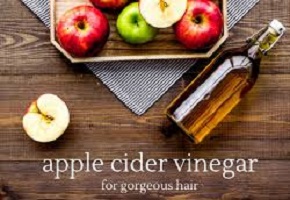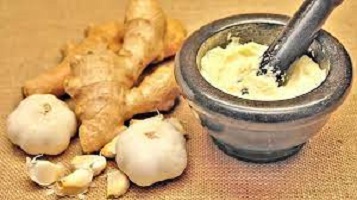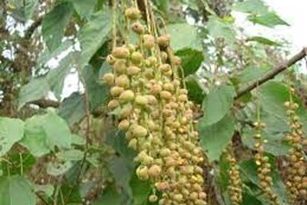Apple Cider Vinegar Rinse for Hair: Boost Shine & Detox Scalp
Apple Cider Vinegar Rinse for Hair to Boost Shine & Detox Scalp

Apple cider vinegar (ACV) is a popular health food and condiment. It’s made with apples and enriched with live cultures, minerals, and acids through a fermentation process.
As a home cure, ACV can be used for a variety of ailments. One of these uses is hair shampoo to help with scalp health, hair strength, and shine.
Despite being under-researched, ACV is praised as a home “panacea” or “cure-all” for health problems. The advantages and science behind ACV do deliver when it comes to hair care.
Apple vinegar cider rinse may be a good natural cure to try if you have hair problems like the itchy scalp or hair breakage.
Related >>>
What Is Apple Cider Vinegar Rinse?
Vinegar can be manufactured from almost any carbohydrate source. It is the product of bacteria and yeast breaking down the carbohydrates in food during fermentation. These carbohydrates are converted to alcohol by yeast, which is then converted to acetic acid by Acetobacter bacteria, which is vinegar.
Apple cider vinegar (ACV) is a well-known health food and condiment. It’s prepared from apples and enriched with live organisms, nutrients, and acid through a fermentation process.
Apple vinegar cider rinse is apple cider that has been diluted with water, which is usually warm. Apple cider vinegar is used to increase scalp health, hair strength, and luster.
It could be a good natural cure to try if you have hair problems like the itchy scalp or hair breakage.
Apple Cider Vinegar Hair Rinse Recipe – Make Your Own Natural Vinegar Hair Rinse
- How To Make & Use Vinegar Rinses – Simple Rinse Recipe
Mix ½ to 4 tablespoons of apple cider vinegar (ACV) with 8 ounces of water in a plastic squeeze bottle, spray bottle, or other containers
Experiment to find a dilution that works best for your hair type (dry hair likes less ACV and oily hair likes more).
If you want some variation, create a vinegar rinse tailored to your hair by adding herbs and/or natural essential oils.
How Do I Use the Vinegar Hair Rinse? Step-by-Step Instructions on how to use for Hair Rinse
Despite its benign benefits, ACV is too abrasive to use directly to hair, so dilute it before applying it to the scalp.
Here’s a little exercise to try:
- Firstly, shampoo your hair as usual.
- Then, combine one to two tablespoons of apple cider vinegar and five tablespoons of water in a small mixing bowl. If desired, add scented essential oils for fragrance.
- Thirdly, massage the mixture into your scalp for five minutes. If properly diluted, it should not burn, but if it does, rinse it out quickly.
- To remove it, properly rinse it with cool water.
What Are the Benefits of Apple Cider Vinegar Rinse for Natural And Curly Hair?
- It gets rid of product build-up.
First and foremost, I was introduced to using ACV to wash my hair since it cleanses and cleans like no other.
It removes product build-up from your hair, leaving it extra lustrous, silky, and smooth. You will have product build-up no matter how well you wash your hair
It balances your hair’s pH balance, making it easier to handle and more lustrous.
The relative acidity or alkalinity of a substance is represented by the pH scale, which stands for “power of hydrogen.” Toxins, stress, and poor-quality food and products damage the natural pH of our hair and skin, making it difficult to maintain and manage our hair.
- It’s full of vitamins and free of toxins.
Apple cider vinegar is high in Vitamin C and free of pollutants, making it good for hair and skin. It’s made from real, whole foods processed in an old-fashioned way, and it’s far better for our bodies and the environment than toxin-laden hair care products.
- It makes your hair last longer between washes
You should anticipate your hair to last longer between washes because it removes product build-up.
- It has antimicrobial properties
ACV is also used as a household disinfectant. It may aid in the control of bacteria or fungi that cause scalp and hair issues including mild infections or itching.
Other Benefits Include:
- Prevents Split ends
- Reduces frizz
- Promotes hair growth
- Detangles Curly Hair
How to make an Apple Cider Vinegar Rinse – Method 2
- Firstly, choose an ACV brand that is organic, raw, and unfiltered. The vinegar should be somewhat murky, not clear, and contain a little quantity of sediment (referred to as “the mother”). This is where all of the nutrients may be found. Before you start, give the bottle a good shake.
- After that, you can use the ACV rinse after bathing your hair or on unwashed hair (just remember to cleanse your hair now and then!) If you’re not cleaning your hair first, make sure it’s moist before you start.
- Then, combine raw ACV and water in a 1-3 ratio (for example, 1 tbsp ACV and 3 tbsp water, or 1 and 3 cups respectively if making a bigger batch).
- Now, use a spray bottle or a bottle with a very narrow hole to administer the mixture. From roots to ends, apply to damp hair. Massage your scalp to help with exfoliation and to stimulate blood circulation.
- Lastly, leave the mixture in your hair for 5 minutes before rinsing thoroughly.
How Often Should You Use an Apple Cider Vinegar Hair Rinse?
Pay attention to your hair’s reaction to the treatment! It’s something you can do once a week or once every few months. I recommend starting with every two weeks or so and gradually increasing the frequency to what feels right for your hair.
Benefits of Apple Cider Vinegar Rinse for Curly Hair
A clarifying rinse with apple cider vinegar eliminates obstinate product build-up, grime, and oil.
Sulfates are found in many clarifying shampoos, which can dry out the hair and cause a dry scalp and brittle ends. The apple cider vinegar rinse is considerably milder and even helps to moisturize hair.
- Does apple cider vinegar rinse ward off dandruff?
Dandruff is caused by a fungus, which is why apple cider vinegar has antibacterial and antifungal qualities. Apple cider vinegar rinse contains malic acid, which helps to maintain the scalp’s pH equilibrium. Dandruff is a build-up of yeast on the scalp that occurs when there is too much yeast on greasy parts of the skin. Using an apple cider rinse can help prevent dandruff from forming on the scalp.
- Apple cider vinegar rinse and hair loss
Apple cider vinegar rinse may help reduce hair loss and promote new hair growth.
By warding off microorganisms and maintaining a regulated pH level, adding apple cider vinegar rinse to your hair care routine will help keep your scalp healthy and boost hair development. Apple cider vinegar rinse gently exfoliates the scalp, promoting hair development and healthier hair.
- Apple cider vinegar rinse before or after hair conditioner
Some folks may be unsure when to wash off with apple cider vinegar. Is it better to use it before or after the hair conditioner?
Product build-up occurs as a result of using shampoos, conditioners, and other hair products regularly. Apple cider vinegar rinse cleans your scalp thoroughly and adds luster to your hair. It’s best to use it after you’ve finished conditioning your hair.
Things to watch out for when using apple cider vinegar rinse
The goal of using apple cider is to restore balance to your hair. It’s easy to overdo it if you’re not careful.
Stop using apple cider vinegar if your hair or scalp problems get worse. Alternatively, reduce the amount of apple cider you use in a rinse or the frequency with which you use it.
Acetic acids in apple cider vinegar are known to be caustic. This means they have the potential to irritate or burn the skin.
Before applying ACV directly to the skin, dilute it with water. If your rinses are excessively powerful, dilute them more; nevertheless, if irritation occurs, it usually goes away within a few days.
Also, keep your hands away from your eyes. If you come into contact with something, wash it out as soon as possible.
If you follow the above rules, using apple cider vinegar is perfectly safe.
FAQs
- Can apple cider vinegar be used as a shampoo substitute?
This isn’t entirely accurate. While apple cider vinegar is an excellent clarifier and exfoliator, it does not cleanse your hair completely.
Alternate apple cider vinegar rinses with shampoo, or rinse your hair with apple cider vinegar right after washing.
If you’re concerned about shampoo stripping your hair, use a gentle, sulfate-free washing shampoo instead.
- Will the rinse damage my hair?
Apple cider vinegar is apple cider vinegar diluted with water, which means that it is less acidic.
Pure apple cider vinegar is extremely acidic and will start degrading your hair, and we don’t recommend using apple cider vinegar to rinse more often than once a week.
However, ACV, when diluted with water and used regularly, is extremely good for your hair!
Apple cider vinegar leaves your hair smelling like vinegar?
This is untrue: as long as the treatment is rinsed off, your hair will smell normal.
-
Side Effects of Apple Cider Vinegar Hair Washing
True, ACVdrinking apple cider vinegar for hair growth contains acetic acid, which is a gentle acid. However, too much ACV can cause difficulties.
If you apply undiluted apple cider vinegar to your scalp for an extended period of time, it might irritate or even burn your skin, especially if you have sensitive skin.
Summary
The usage of apple cider vinegar for hair is supported by science. By reducing hair and scalp pH, it may help strengthen hair and increase shine.
Hair is unique to each individual. Rinses with apple cider vinegar may or may not be effective for everyone.
The easiest method to find out if it’s right for you is to incorporate it into your hair care routine and see how it goes.


